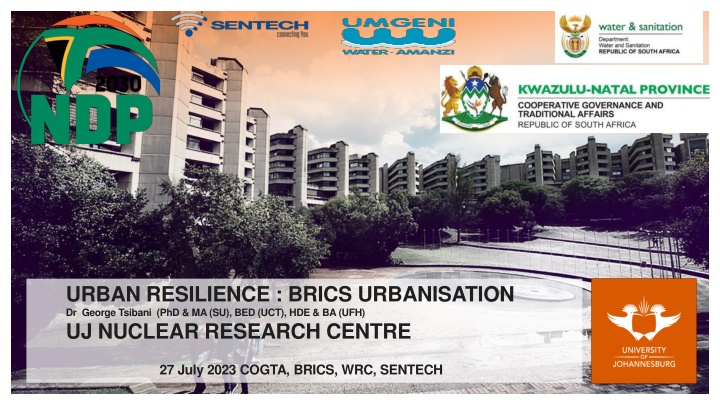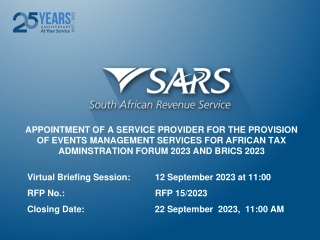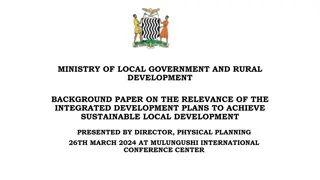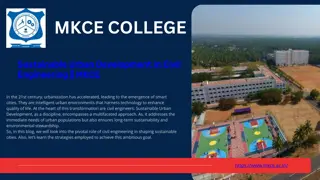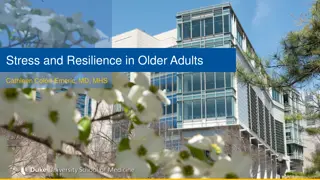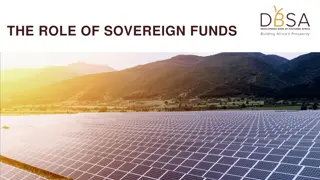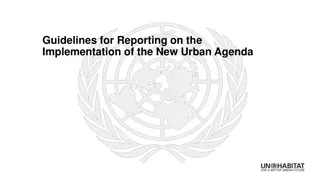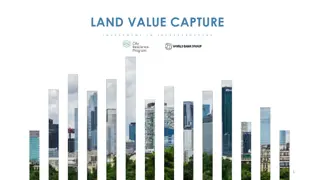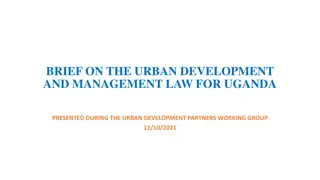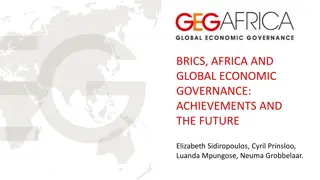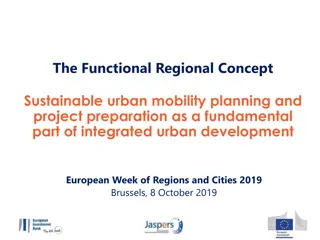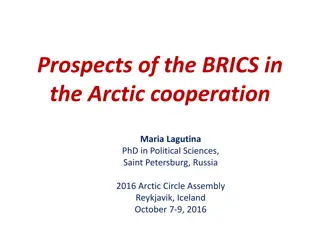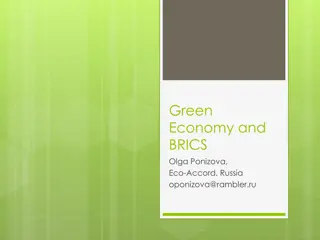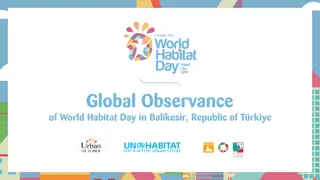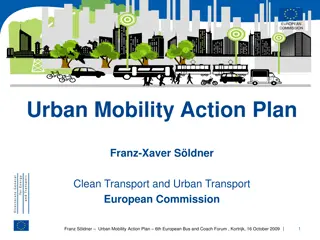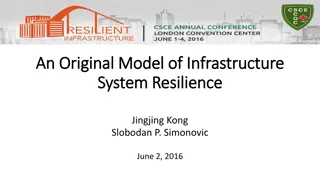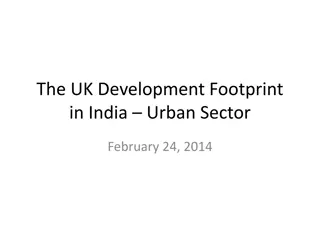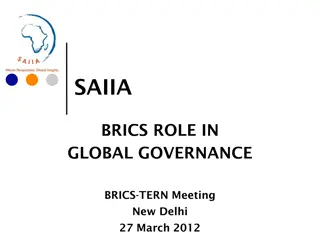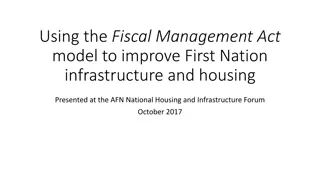Enhancing Urban Resilience in BRICS through Integrated Infrastructure and Sustainable Development
Dr. George Tsibani discusses the importance of water resilience, sustainable development goals, and the role of BRICS in fostering smart cities and rural-urban integration. The focus is on building resilience in urban water systems for economic growth and societal well-being. Solutions are proposed to address challenges and ensure universal access to urban water resilience by 2030.
Download Presentation

Please find below an Image/Link to download the presentation.
The content on the website is provided AS IS for your information and personal use only. It may not be sold, licensed, or shared on other websites without obtaining consent from the author.If you encounter any issues during the download, it is possible that the publisher has removed the file from their server.
You are allowed to download the files provided on this website for personal or commercial use, subject to the condition that they are used lawfully. All files are the property of their respective owners.
The content on the website is provided AS IS for your information and personal use only. It may not be sold, licensed, or shared on other websites without obtaining consent from the author.
E N D
Presentation Transcript
URBAN RESILIENCE : BRICS URBANISATION Dr George Tsibani (PhD & MA (SU), BED (UCT), HDE & BA (UFH) UJ NUCLEAR RESEARCH CENTRE 27 July 2023 COGTA, BRICS, WRC, SENTECH
1. Water is a blood of earth 2. SDGs 6,7 and 11 3. BRICS and BEAR 4. UJ , Umgeni-Thukela Water Board 5. New enterprises 6. Recommendations 2
PURPOSE OF BRICS restore P.R.I.D.E. through W.E.A.L.T.H. creation in smart cities Support integrated rural and urban infrastructure investment programmes (IR & UIIP) driven by 4IR , & IoT 3
PROBLEM STATEMENT Getting it wrong has serious economic & social consequences 4
BUILDING URBAN WATER RESILIENCE DEPENDENCIES Breaking new grounds in research Resilience focusing on Water, Energy and Food Nexus Innovation for PRIDE Poverty SMART Governance 2500 years ago, Taoist Chuang-Tzu said: "Water is the blood of the Earth, and flows through its muscles and Commercialisation for WEALTH HYDROLOGICAL CYCLE Solution in water STREAM Ecosystems at risk veins. Social Challenges STRESS On Natural Water Sources SOCIETAL RESPONSES
UNIVERSAL ACCESS TO URBAN WATER RESILIENCE National Development Plan (NDP): Vision 2030 Medium Term Strategic Framework (MTSF): 5 years National Water Resources Strategy objectives Sustainable Development Goals SDG 4: education Chapter 3: Outcome 4: Jobs Economy that will create jobs Water contributes to the economy and job creation SDG 6: Clean water and sanitation Outcome 6: Chapter 4: Economic infrastructure Improving infrastructure Water is protected, used, developed, conserved, managed and controlled sustainably and equitably Chapter 5: Outcome 10: Environment SDG 7: energy efficiency Transition to low carbon economy Chapter 6: Inclusive & integrated rural economy Outcome 7: Rural development SDG 11: smart cities Water supports development and elimination of poverty and inequality Chapter 13: Building a capable state Outcome 9: Local government SDG 11: smart VILLAGES & COMMUNITIES Source : DWS (2019: National Water and Sanitation Master Plan ) 6
TWINNING OF SMART CITIES FOR WATER RESILIENCE Smart Governance People Planet Prosperity Principled- governance and Partnerships IDP and LED tools as spine for LGDA Market-led policies, strategies and plans User-friendly regulations Participation in decision-making Transparency Public and social services Strategy and perspective Principled economic governance Smart Economy Back to Business Business Expansion, Attraction and Retention Innovative spirit Entrepreneurship Ideapreneurship Ability to adjust Productivity Flexibility of labour market Localisation and manufacturing WATER, ENERGY AND FOOD CITY TO CITY RESILIENCE MODEL 2050 VISION Smart way of Living Water, Energy, Agriculture, optimal land use, technology, and health infrastructure investments Health system (HIV & AIDS) Security Residential infrastructure Educational infrastructure Social cohesion Smart mobility Accessibility to Wi-Fi ICTs infrastructure Sustainable and innovative transport system Smart citizens Research, Development, Innovation, and Creativity Inclusive participation of households Flexibility of smart cities Smart local businesses Build, Operate, Train, and Transfer Public Private Providers Private Sector Provider Smart community centres, educare centres, schools, and universities Smart human resources Smart environment Environmental protection Sustainable use of natural resources Green engineering solutions Urban sustainability Co-existence with environment Ecosystem services Smart houses, villages, towns, and cities aligned to ecosystem services Blue and Green Urban Development 7
UJ APPROACH WATER RESILIENCE USING IOT CoSMOS Community-Based Sustainable Management & Observation Systems Approach & Work Packages Target regions Deliverables The CoSMOS bi-directional strategy is bottom-up and top-down WP1: PLANNING Data Management and Modelling UJ R&D WP4: Applicable and replicable outcomes of applied German-South African research cooperation WP3: WATER ECOLOGY Infrastructure Monitoring Observation Data collection Stakeholder-Engagement Infrastructure assessment Pilot concepts, solutions Systems analysis WP5: WATER, OBSERVATION IoT, BDA etc Web-GIS based river basin information system with open Data-Warehouse on water allocation ENERGY & FOOD Community-based concepts and solutions to secure water reuse utilizing existing infrastructure Community-based monitoring concepts building on previous work on IWRM in the region taking account of economical, ecological, financial,social, technical regionalized and localized in two pre- selected target regions for cross-verification WP2: INFRASTRUCTURE- BRICS Strategies , & Plans CoSMOS CoSMOS covers economical, ecological, financial, social and technical aspects CoSMOS will leverage funding by use of previous R&D projects and existing infrastructure Plans and programs to optimize the ecological functions, status of water resources and biotopes 8
BRICS : BUILDING WATER RESILIENCE IN CITIES It is about partners going Back To Water Business (B2WB) using B.E.A.R. and restore P.R.I.D.E. through W.E.A.L.T.H. creation Back Business Production To Expansion Reindustrialisation Energy Resilience Water Attraction Innovation Agriculture Innovation Business Rentension Domestication Land Commercialisation Enterprise Technology Solutions Health Water Breaking new grounds 9
IOT Generated New Enterprises and New Business Peer Mentorship: Professor Saifur Rahman, 2022 IEEE President Elect Joseph Loring Professor & Director, VT Advanced Research Institute, USA Internet of Energy : Smart Cities, Smart Grids, Smart Metering and Billing Enhancing water utility modelling in various water assets and buildings Emphasis will be to proactively respond to the digitalization of the utility sector. Search for New Learning, New Strategies of Implementation and New Industrial Innovation Opportunities. Capacity Building and Training MA , PhD and Postdoctoral Candidates Young Professionals being supported by Associations and Supervisors Short Learning and New Qualifications Upskilling, Reskilling, Retooling and Training
IOT Generated New Enterprises and New Business Water Reticulation Practitioner, (SAQA ID 102581 NQF Level 04; Credits 236- Umgeni Water and Rand Water waterworks in partnership with UJ Water Governance and Leadership (SLP) IRRP of water utilities Land Use and Agroecology (SLP) SPLUMA with CONTRALESA, SALGA, COGTA & MISA Water Infrastructure Manager, (SAQA ID 104623 NQF Level 08; Credits 304)-Robotics: Remotely Operated Vehicles (ROVs) for Tunnel Inspection Funding and Financing Model for Large Infrastructure Projects Energy efficiency driven by automation of water assets One Plan using COGTA DDM technology transfer models in water, energy and food CANDIDATES : IoT Generated New Enterprise : WATER , ENERGY AND FOOD Support to Honours, MA and PhD candidates Work integrated learning (WIL) with young professional with professional mentors and supervisors driven by 4IR
Methodology and Approach A SMART CITY PLAN DIGITAL SKILLED PEOPLE PARTNERSHIPS COMMUNITY INVOLVEMENT INFRASTRUCTURE Knowledge or Theory = 30%) Practical Skills = 30% Workplace Experiences = 40% Building Urban Water Resilience with skilled workforce Upskilling, Retraining, Retooling and training on new skills
RECOMMENDATIONS We need to rethink Integrated Rural and Urban Infrastructure Investment Programmes (IR &UIIP) Water for Growth and Development Mpumalanga 2007/2008 BEAR with National Treasury and World Bank Restoration of PRIDE through WEALTH creation Promote water STREAM in African schools ( science, technology, research, engineering, art and mathematics) Business Development Facility Management informed by DFIs (DBSA), SOEs, & MISA Reform, Reconfigure and Realign MISA to lead Infrastructure Investment Models with BRICS countries for AfCFTA and prepare BANKABLE BUSINESS PLANS Twinning institutional arrangements of at least 7 municipalities/cities per country under BRICS for PROTOTYPE and TURNING AROUND strategies BRICS to support current IoT initiatives funded by Sentech for achieving 2050 targets Ratings of municipalities for investment purposes starting in South Africa
Thank you This is a great opportunity to Serve Sentech and Society in the Era of the 4th Industrial Revolution. Dr George TSIBANI +27(0) 82 809 2162 gtsiabani@uj.ac.za tmtshali@uj.ac.za tsibanig@mthengenya.co.za
